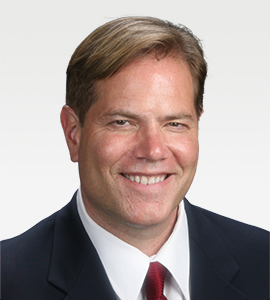Connecting Psychiatric and Medical Care
One of the most exciting and invigorating developments we're seeing is the increased integration of psychiatry into general medicine. This is a necessary shift away from the stigmatization of mental healthcare, and its need is confirmed again by a recent study that shows patients with behavioral health conditions account for 57% of medical costs.
We believe psychiatry will continue to evolve toward team- and community-based management of patients. Under this model, a psychiatric nurse, advanced provider, or social worker serves as the primary provider and checks in regularly with a patient via videoconference. This provider is supported by a care team, including a psychiatrist who reviews records, approves therapies, and makes recommendations and will see the patient personally whenever appropriate. This team-based approach has commonly been reserved for only the most severely and persistently mentally ill. We imagine expanding this model will help care reach more patients. It permits services to be delivered where patients are both literally – and figuratively.
This team-based virtual model also lends itself to care navigation, a practice that improves outcomes while reducing costs. Historically, patients who shared their symptoms of depression with an internal medicine provider may have been prescribed an antidepressant and perhaps given a referral to a psychologist or psychiatrist. Now, patient care navigation makes this a seamless experience. The care navigator is responsible for the ongoing treatment and care of the whole patient, not just the individual symptoms treated in an ad hoc manner. They also help patients communicate more effectively with their healthcare providers, so they are better informed and empowered to make decisions about their total care.
Shifting Behavioral Health Care Outside Emergency Departments
For many communities, the emergency department (ED) is the sole provider of mental health and substance abuse care. Unfortunately, most departments are poorly equipped to handle behavioral health emergencies. As a result, many of these patients end up “boarding” for extended periods until an inpatient psychiatric bed becomes available.
On top of harming patients, boarding is a major cause of ED crowding. In some departments, psychiatric boarders routinely occupy 20% of beds. One promising solution to this dilemma is the EmPath Unit, a short stay-unit separate from the ED. EmPath operates on the premise that most psychiatric ED patients require short-term care, not inpatient psychiatric hospitalization. Incoming EmPath patients receive a timely psychiatric evaluation followed by compassionate, holistic, trauma-informed care in a therapeutic and homelike setting. More than 70% of EmPath patients are stabilized and discharged to a lower level of care within 24 hours.
Studies show that EmPath units are extremely effective at reducing ED boarding. They’re also quite cost-effective and face fewer regulatory barriers than standalone community programs.
At Vituity, we’ve seen interest in EmPath units grow steadily in recent years, but the pandemic has accelerated demand. We therefore predict that this model will become the standard for acute behavioral healthcare in the future.
Leading the Acute Psychiatry Evolution with Vituity
At Vituity, we believe psychiatry is integral to quality medical care. We can’t practice good emergency medicine, hospital medicine, neurology, or any other specialty without meeting patients’ mental health and substance abuse needs.
We also believe that hospitals are essential providers of behavioral health services, and that they help in ways community-based programs cannot. We therefore actively embrace the current disruption as an opportunity to transform care for this vulnerable population.
Vituity's front-line psychiatrists are our greatest champions for change. As shared owners in our practice, we have the freedom and support to create our own futures. Here are just a few of the ways we’re transforming care for the benefit of patients everywhere:
- Helping hospitals create and staff new EmPath units (demand is growing fast).
- Partnering with tech companies to bring care to more patients exactly where they are.
- Rapidly expanding our telehealth capabilities to serve more patients and provider teams as the pandemic unfolds.
- Working within our multispecialty practices to provide seamless care continuity in an increasingly virtual world.
- Supporting front-line providers in bringing their care delivery innovations to life. One recent example is an application that largely automates psychiatric admissions from the ED.
With our engaged leadership and robust practice management support, Vituity frees up physicians to do what they do best: caring for patients and transforming the future of care.
























